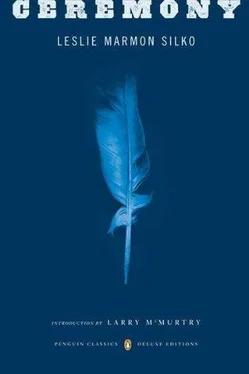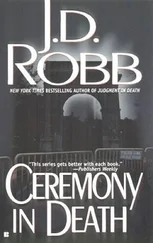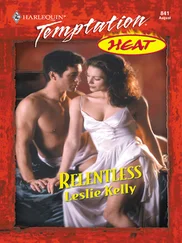He wanted to believe old Betonie. He wanted to keep the feeling of his words alive inside himself so that he could believe that he might get well. But when the old man left, he was suddenly aware of the old hogan: the red sand floor had been swept unevenly; the boxes were spilling out rags; the trunks were full of the junk and trash an old man saves — notebooks and whisker hairs. The shopping bags were torn, and the weeds and twigs stuck out of rips in the brown paper. The calendars Betonie got for free and the phone books that he picked up in his travels — all of it seemed suddenly so pitiful and small compared to the world he knew the white people had — a world of comfort in the sprawling houses he’d seen in California, a world of plenty in the food he had carried from the officers’ mess to dump into garbage cans. The old man’s clothes were dirty and old, probably collected like his calendars. The leftover things the whites didn’t want. All Betonie owned in the world was in this room. What kind of healing power was in this?
Anger propelled him to his feet; his legs were stiff from sitting for so long. This was where the white people and their promises had left the Indians. All the promises they made to you, Rocky, they weren’t any different than the other promises they made.
He walked into the evening air, which was cool and smelled like juniper smoke from the old man’s fire. Betonie was sitting by the fire, watching the mutton ribs cook over a grill he had salvaged from the front end of a wrecked car in the dump below. The grill was balanced between two big sandrocks, where the hot coals were banked under the spattering meat. Tayo looked down at the valley, at the lights of the town and the headlights and taillights strung along Highway 66.
“They took almost everything, didn’t they?”
The old man looked up from the fire. He shook his head slowly while he turned the meat with a forked stick. “We always come back to that, don’t we? It was planned that way. For all the anger and the frustration. And for the guilt too. Indians wake up every morning of their lives to see the land which was stolen, still there, within reach, its theft being flaunted. And the desire is strong to make things right, to take back what was stolen and to stop them from destroying what they have taken. But you see, Tayo, we have done as much fighting as we can with the destroyers and the thieves: as much as we could do and still survive.”
Tayo walked over and knelt in front of the ribs roasting over the white coals of the fire.
“Look,” Betonie said, pointing east to Mount Taylor towering dark blue with the last twilight. “They only fool themselves when they think it is theirs. The deeds and papers don’t mean anything. It is the people who belong to the mountain.”
Tayo poked a stick into the coals and watched them lose shape and collapse into white ash. “I wonder sometimes,” he said, “because my mother went with white men.” He stopped there, unable to say any more. The birth had betrayed his mother and brought shame to the family and to the people.
Old Betonie sat back on his heels and looked off in the distance. “Nothing is that simple,” he said, “you don’t write off all the white people, just like you don’t trust all the Indians.” He pointed at the coffeepot in the sand at the edge of the coals, and then at the meat. “You better eat now,” he said.
Tayo finished the meat on the mutton ribs and threw the bones to a skinny yellow dog that came out from behind the hogan. Behind the dog a boy about fifteen or sixteen came with an armload of firewood. He knelt by the fire with the kindling; Betonie spoke to him in Navajo and indicated Tayo with a nod of his head.
“This is my helper,” he told Tayo. “They call him Shush. That means bear.” It was dark, but in the light from the fire Tayo could see there was something strange about the boy, something remote in his eyes, as if he were on a distant mountaintop alone and the fire and hogan and the lights of the town below them did not exist.
He was a small child learning to get around by himself. His family went by wagon into the mountains near Fluted Rock.
It was Fall and they were picking piñons. I guess he just wandered away trying to follow his brothers and sisters into the trees. His aunt thought he was with his mother, and she thought he was with her sister.
When they tracked him the next day his tracks went into the canyon near the place which belonged to the bears. They went as far as they could to the place where no human could go beyond, and his little footprints were mixed in with bear tracks.
So they sent word for this medicine man to come. He knew how to call the child back again.
There wasn’t much time. The medicine man was running, and his assistants followed behind him.
They all wore bearweed tied at their wrists and ankles and around their necks.
He grunted loudly and scratched on the ground in front of him he kept watching the entrance of the bear cave. He grunted and made a low growling sound. Pretty soon the little bears came out because he was making mother bear sounds.
He grunted and growled a little more and then the child came out.
He was already walking like his sisters he was already crawling on the ground.
They couldn’t just grab the child They couldn’t simply take him back because he would be in between forever and probably he would die.
They had to call him step by step the medicine man brought the child back.
So, long time ago they got him back again but he wasn’t quite the same after that not like the other children.
Tayo stood up and moved around the fire uneasily; the boy took some ribs and disappeared again behind the hogan. The old man put some wood on the fire. “You don’t have to be afraid of him. Some people act like witchery is responsible for everything that happens, when actually witchery only manipulates a small portion.” He pointed in the direction the boy had gone. “Accidents happen, and there’s little we can do. But don’t be so quick to call something good or bad. There are balances and harmonies always shifting, always necessary to maintain. It is very peaceful with the bears; the people say that’s the reason human beings seldom return. It is a matter of transitions, you see; the changing, the becoming must be cared for closely. You would do as much for the seedlings as they become plants in the field.”
NOTE ON BEAR PEOPLE AND WITCHES
Don’t confuse those who go to the bears with the witch people. Human beings who live with the bears do not wear bear skins. They are naked and not conscious of being different from their bear relatives. Witches crawl into skins of dead animals, but they can do nothing but play around with objects and bodies. Living animals are terrified of witches. They smell the death. That’s why witches can’t get close to them. That’s why people keep dogs around their hogans. Dogs howl with fear when witch animals come around.
The wind came up and fanned the fire. Tayo watched a red flame crawl out from under the white coals; he reached down for a piece of juniper and tossed it in. The fire caught. He rubbed pitch from the wood between his fingers and looked down at Gallup.
“I never told you about Emo,” he said, “I never told you what happened to Rocky.” He pointed at the lights below. “Something about the lights down there, something about the cars and the neon signs which reminds me of both of them.”
“Yes,” the old man said, “my grandmother would not leave this hill. She said the whole world could be seen from here.”
“Rocky wanted to get away from the reservation; he wanted to make something of himself. In a city somewhere.”
“They are down there. Ones like your brother. They are down there.”
Читать дальше












